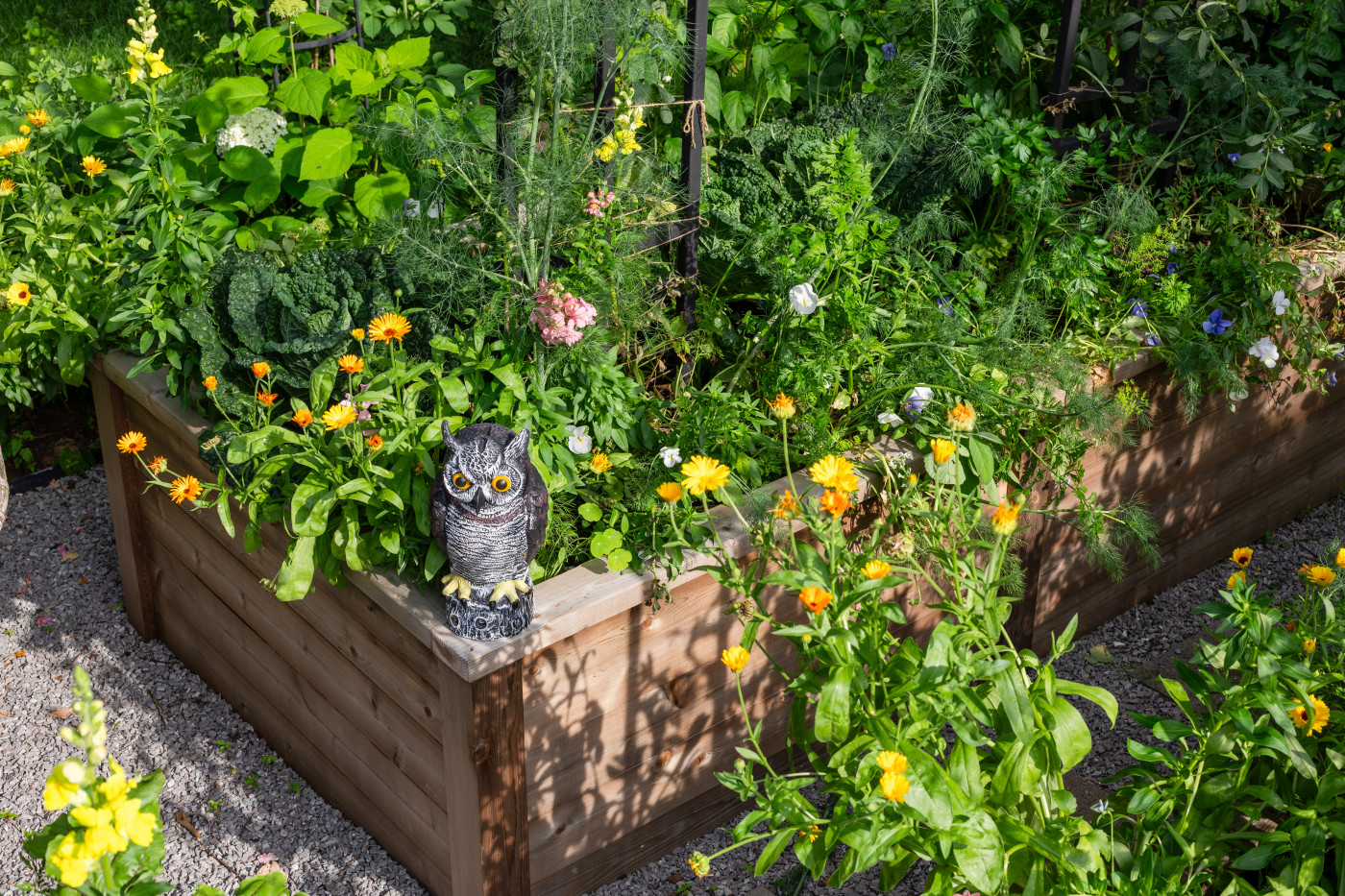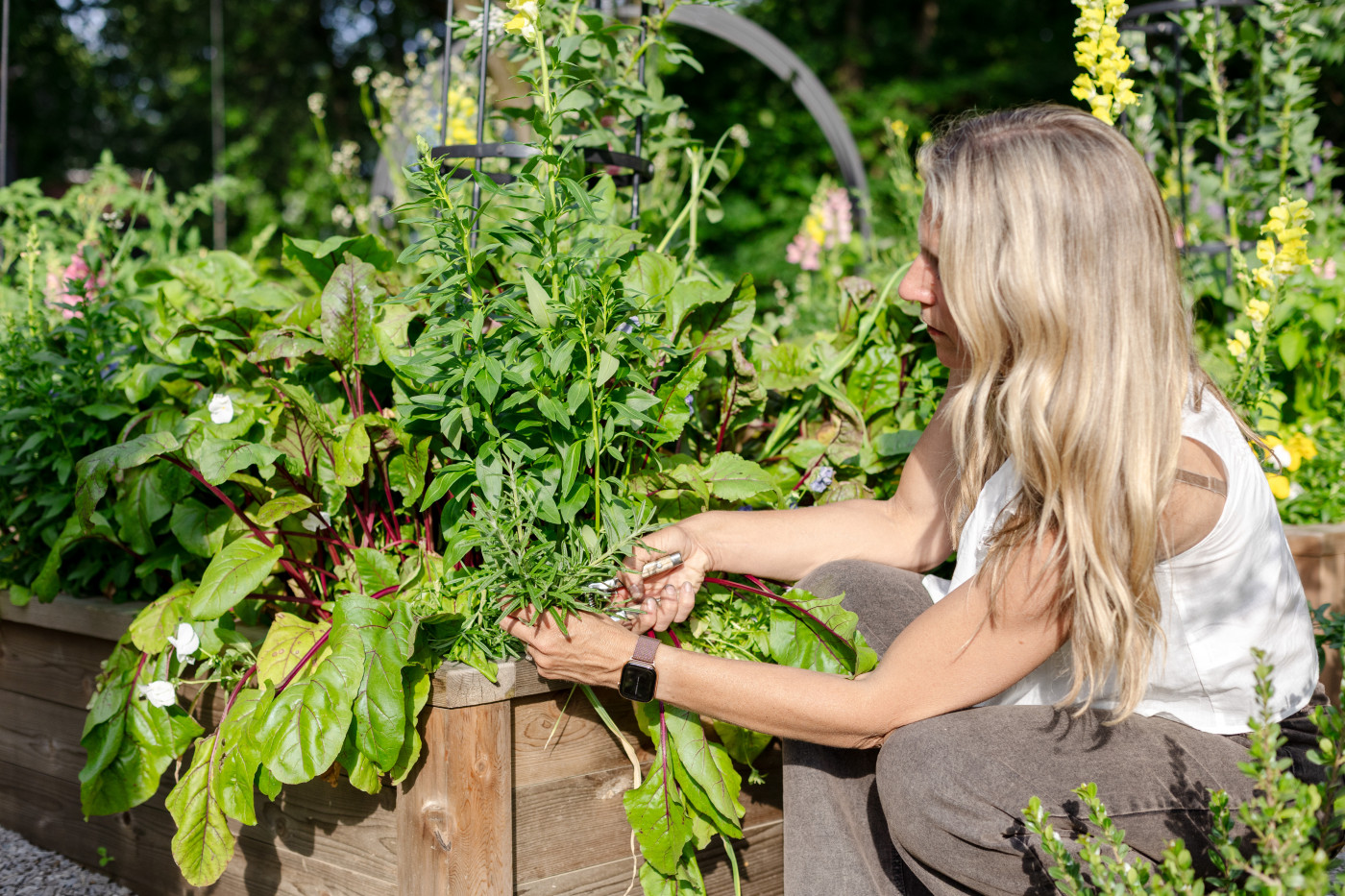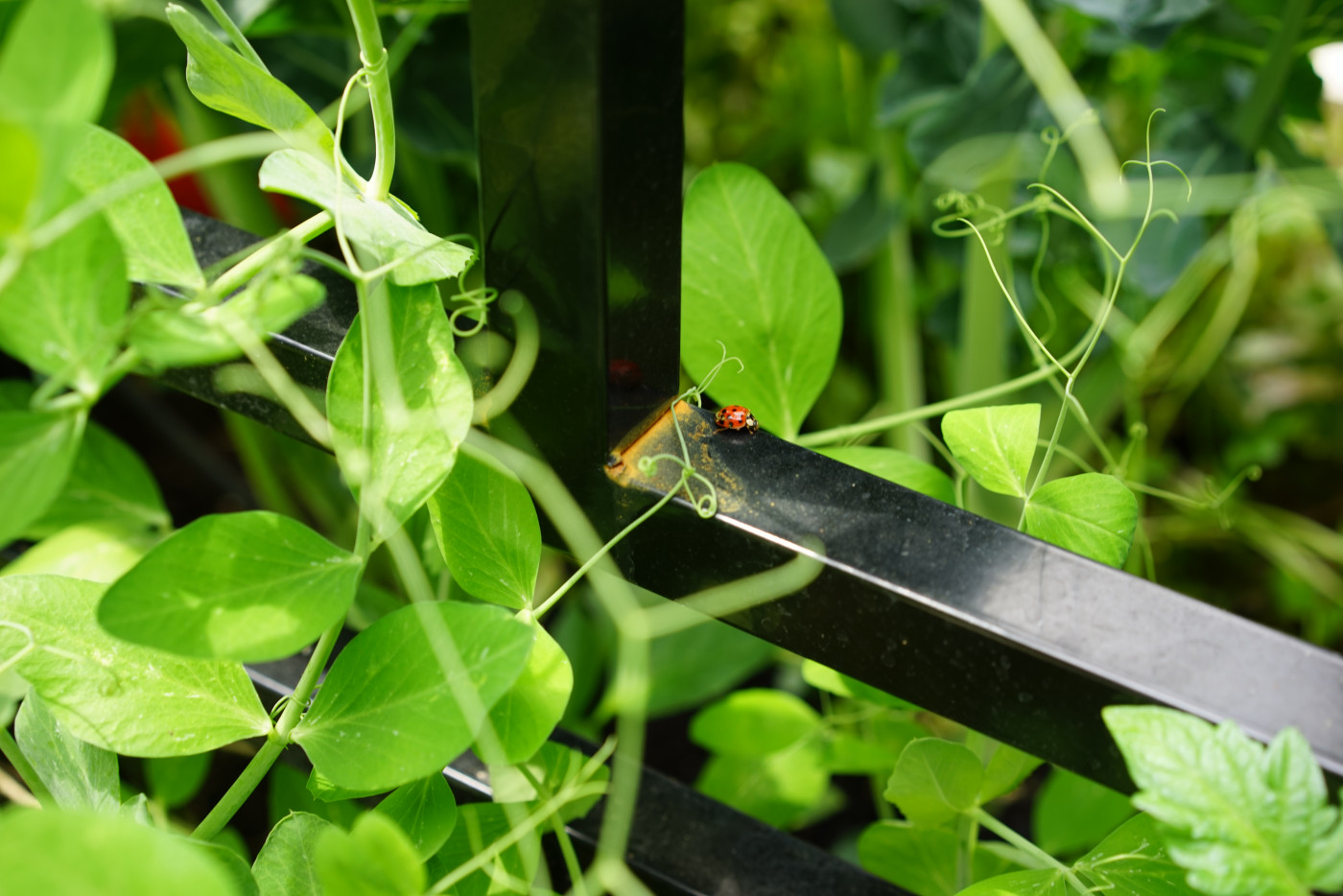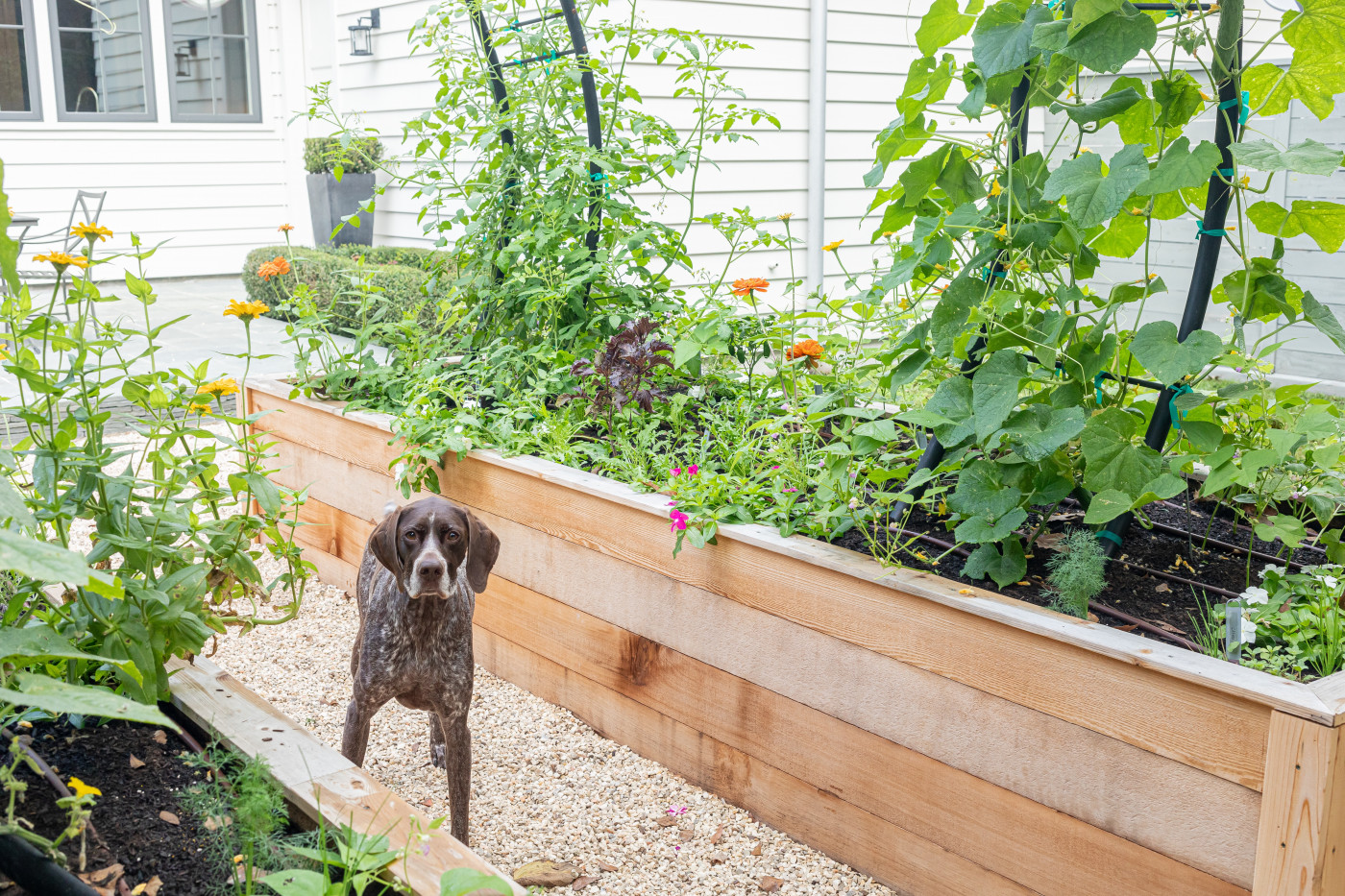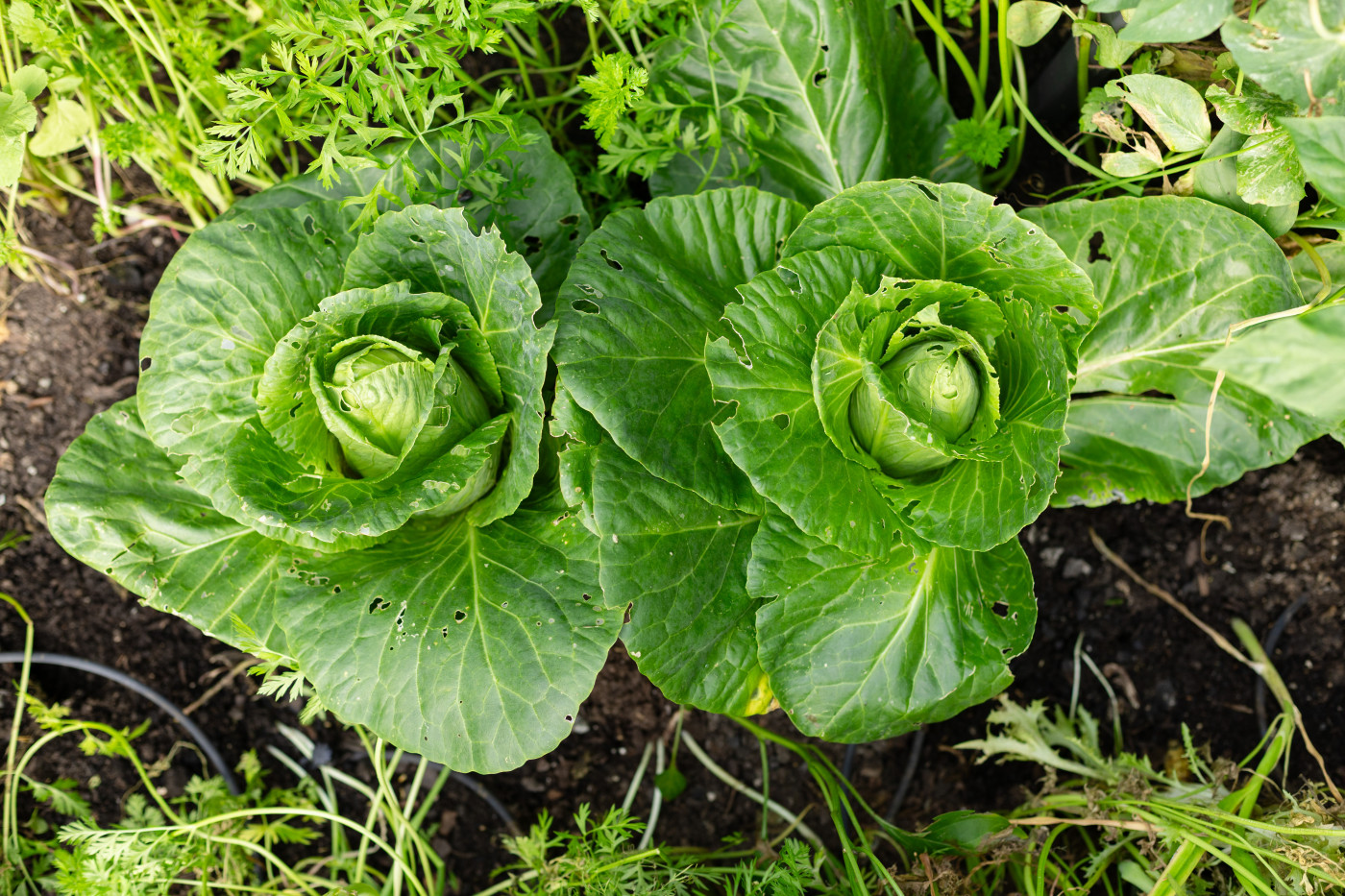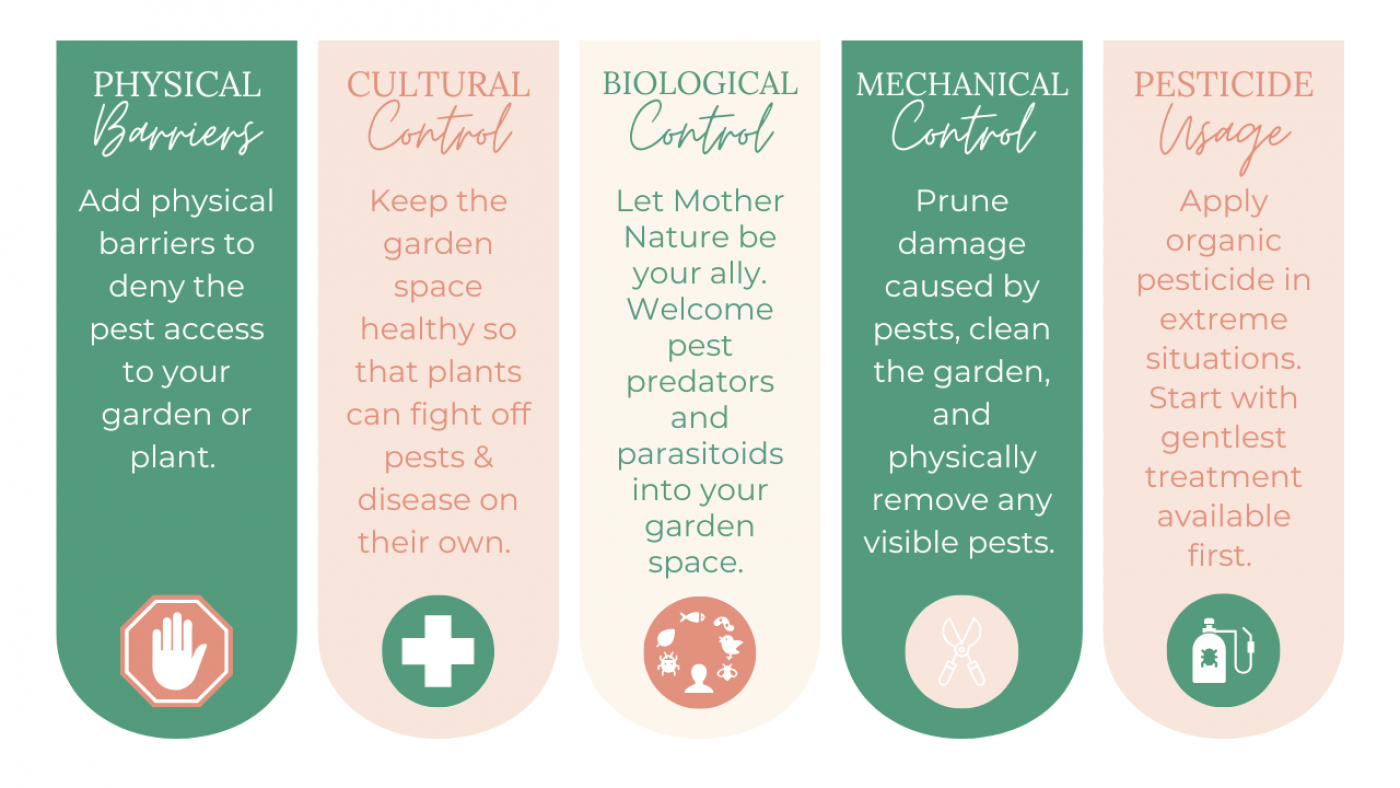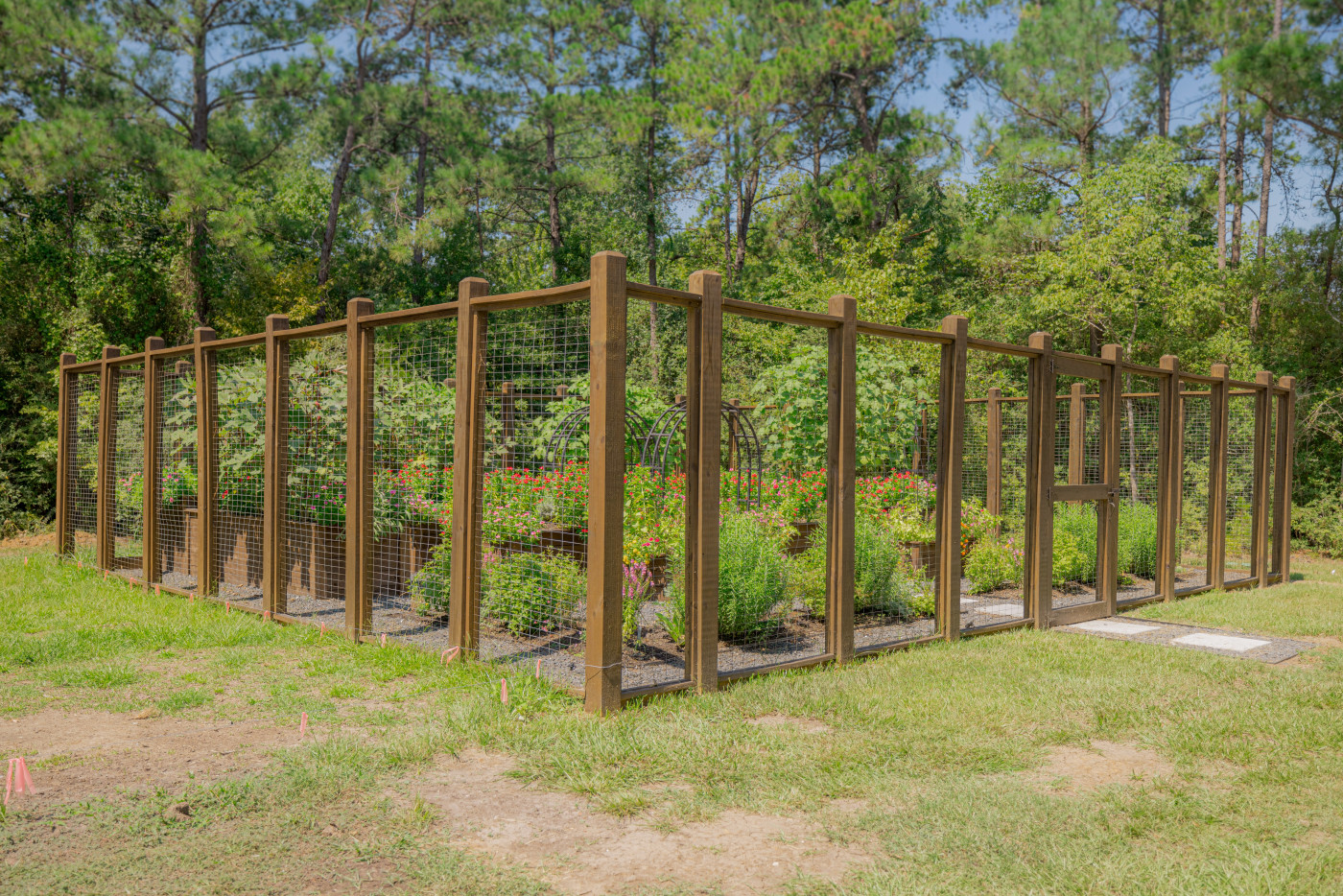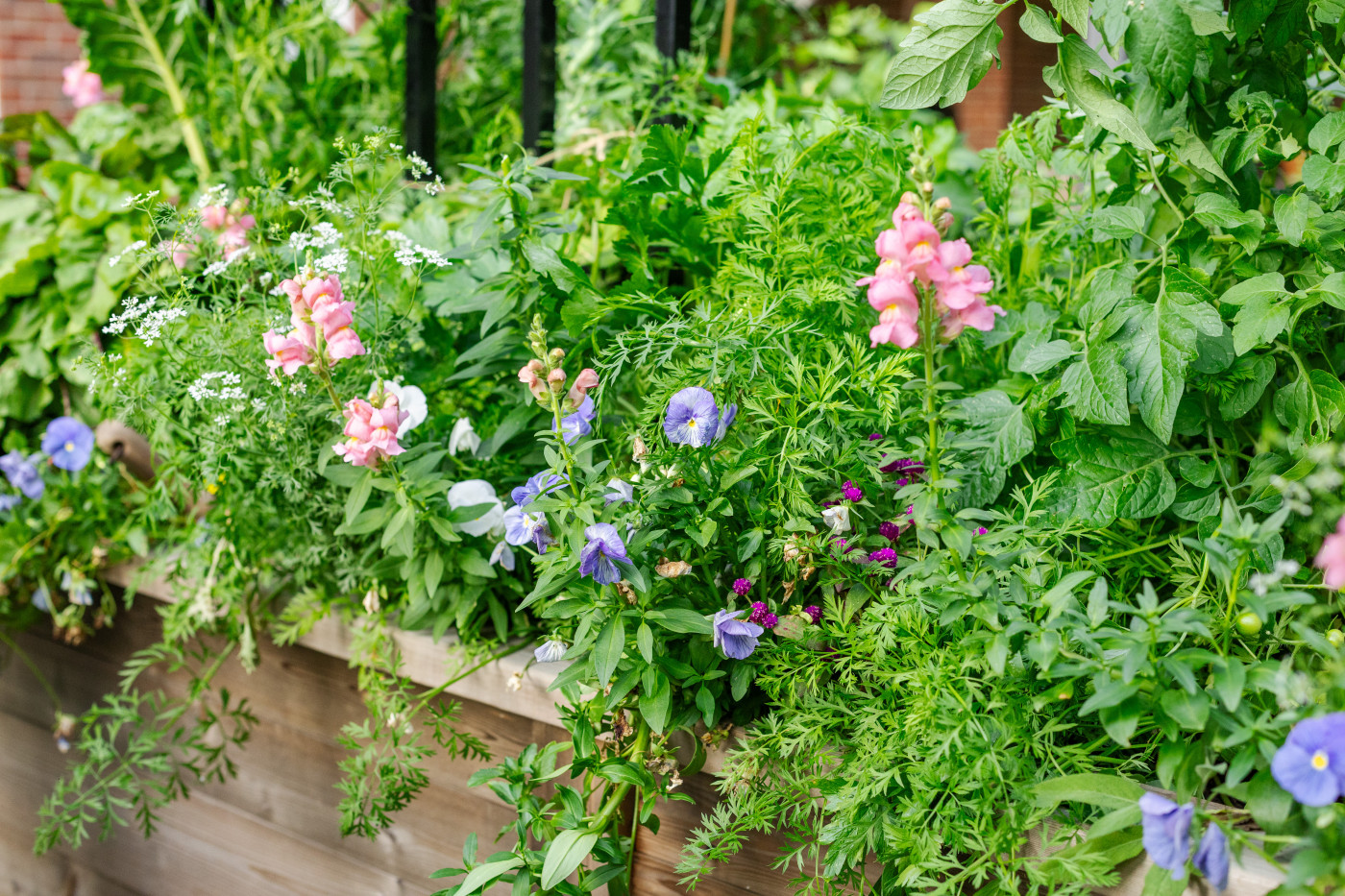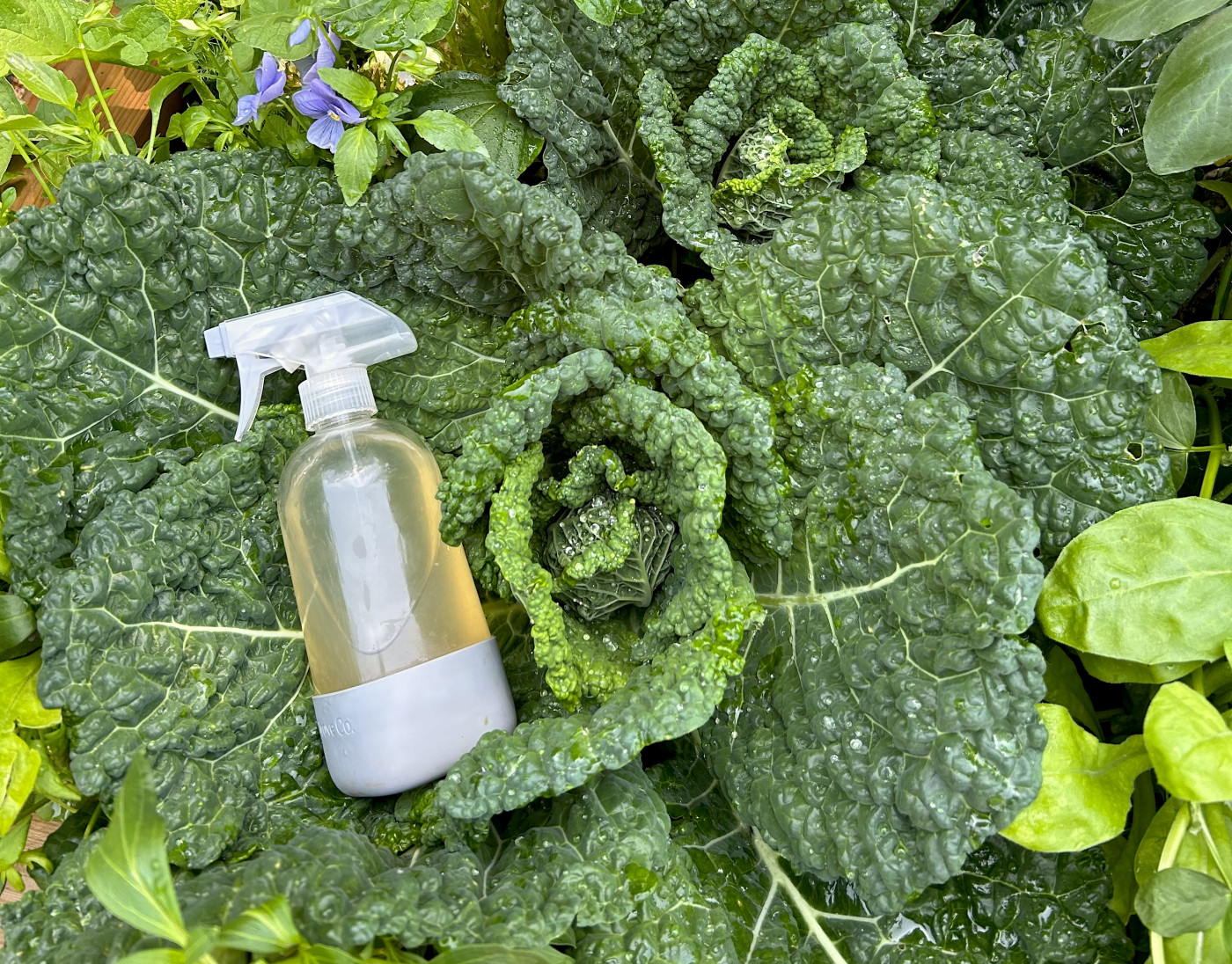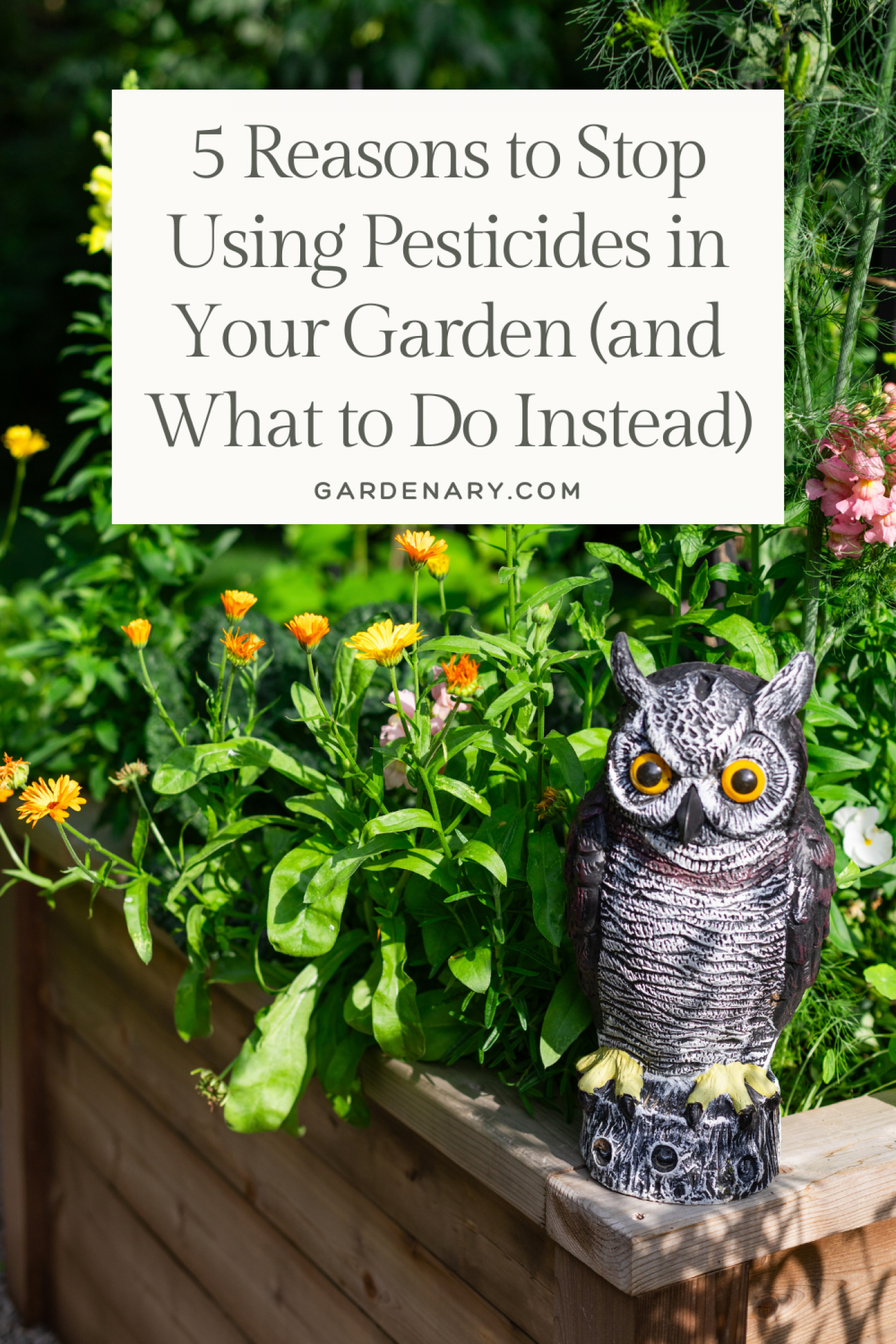Organic Gardening and Farming Is Better for the Environment
Let's say you pop out to your garden, notice some aphids on the leaves of your collard greens, and spray a little pesticide to kill them. Harmless, right? You're just affecting your own little microcosm, right?
Now picture a farmer spraying his entire vegetable patch. Picture a big agriculture company treating field after field. In each of these scenarios, we're doing a lot more than just spraying a leaf and killing one particular bug.
We all know that organic gardening, with its focus on avoiding synthetic fertilizers and pesticides, is better for the environment. But why is that? What's the real problem of reaching for a spray to help you control a problem? I'm going to highlight five negative effects of pesticide usage and then give you alternative (and effective!) options to use in your garden.
At a Glance
- Pesticides should more accurately be considered "biocides", as in chemicals that kill living things, as their usage has a trickle-down effect that's extremely harmful to living things in general.
- Pesticide usage is linked to negative health outcomes for humans and pets, a decline in a pollinator and wildlife populations, and contamination of our groundwater supply.
- Integrated Pest Management (IPM) is an effective strategy for managing garden pests while minimizing any negative environmental effects.
What Are Pesticides, Really?
Pesticide is a broad term that covers thousands of different chemicals used to control pests and even weeds, plant diseases, and more.
Pesticides are grouped based on what they control: insecticides control insects, rodenticides control rodents, herbicides control weeds, and fungicides control certain fungal diseases.
Pesticides created for insect and animal control work by disrupting some part of the pest's biological function, such as reproducing or eating. This is why pesticides are often very pest-specific. There's no one-size-fits-all pesticide that would control every single insect that might come into your garden.
That being said, there's really no such thing as a pesticide, as in something that only kills pests. It's more accurate to think of them as "biocides", as in chemicals that kill living things. As you'll see, pesticide usage has a trickle-down effect that's extremely harmful to living things in general.
So without further ado, let's look at five major problems with using pesticides.
Gardenary's Organic Pest Control Method
Stop fighting pests. Instead, start gardening with them in mind. No panic. No harsh sprays. No endless guessing. Just a thriving, abundant garden that practically protects itself. With the Organic Pest Control Method, you’ll learn the exact steps I take to grow naturally and confidently, season after season.

5 Major Problems of Pesticide Usage
Pesticides Affect Human Health
Let's start off with the most important reason to avoid pesticides, which is for the sake of our own health.
A recent study here in the US tested people's urine and found byproducts of pesticides in over 90 percent of the samples. These pesticides mostly come from eating fruits and vegetables from the store, even though the EPA has done tests that show only trace amounts of pesticides remain in the fruits and vegetables we consume.
The pesticides that we do eat seem to stay inside our bodies, which makes sense considering they're designed to stay inside the body of a pest while they do their damage.
And it's worse for the people who grow our food. Research from California, where the majority of our food here in the US is grown, has linked negative health impacts to not just the farm workers who spray pesticides on farms, but also their families. Glyphosate, which is classified as a pesticide though it's used to kill weeds, has been associated with kidney toxicity, an increased risk for non-Hodgkin’s lymphoma, fatty liver disease, endocrine disruption, and changes to the microbiome in agricultural communities.
The EPA goes to great lengths to ensure pesticides don't end up in baby and toddler foods because children are the most affected by these strong chemicals. But what does that mean for the farm worker who comes home with spray on their shoes and clothes, and all those chemicals end up on the floor and in the air that their children are breathing?
Our food is grown by people.
People who matter, people who have children, people who are trying to provide for their family in a meaningful way and want to stay healthy. People whose safety should matter to us.
Pesticides Affect Pollinators
As I'm sure you know, honeybees are in decline, their colonies collapsing. It's actually even worse for bumblebees.
In the past decade, a new group of pesticides called neonicotinoids has been used to treat corn, soy beans, canola, and other widely grown crops here in the US. These pesticides have been linked to the dramatic decline of pollinators and wildlife. In fact, in 2017, U.S. beekeepers reported losing an unsustainable 33 percent of their hives in just two years.
This new method for keeping our plants "healthy" and pest-free has a major impact on other insects, insects that we know we need to keep, like bees and butterflies. It also can kill other beneficial insects like ground beetles, predatory mites, and whiteflies. Wiping out these pest predators can actually make your pest problem even worse next time.
Remember, you don't just kill the "bad bugs" when you treat garden pests.
Not everyone cares all that much about pollinators, but they play a surprisingly large role in the production of the foods we have available to us. In the US alone, honey bees, bumble bees, and wild bees contribute over $20 billion to agriculture. We rely on insects to grow so many of the fruits and veggies we enjoy eating.
Pesticides Affect Groundwater
Every time it rains, all those sprays that have been applied to your grass and your garden are washed down the street and into the sewer, where they end up in the city's water system and any down-stream body of water. If you live near an ocean, those chemicals are now affecting marine life. Same thing with rivers and lakes. Many of the compounds used in pesticides today are toxic to aquatic life in very low concentrations.
Even worse, runoff from big farms means pesticides end up in our groundwater. That's the water that roughly half of Americans use as drinking water. Even if the US banned all pesticide usage today, it would likely take decades for these dangerous chemicals to work their way out of the groundwater supply.
Pesticides Affect Wildlife
That bug being sprayed may be bugging us, but it makes an appetizing little snack to something higher up on the food chain. Unfortunately, whatever pesticides it got into end up climbing the whole food chain and impacting local wildlife. The EPA determined that pesticides threaten 80 percent of our endangered species.
We're all interconnected. The idea that you can just spray a set of plants or an isolated farm is just not realistic. You're really impacting insects that we rely on to build our food system and the animal that eats them and the animal that eats them and so on.
Pesticides Affect Domestic Pets
Pesticides can pose significant risks to domestic animals like dogs and cats. Let's say you've got a gopher problem in your garden, so you put some poisoned bait inside the tunnel. Well, the thing that attracts that gopher is also attractive to your dog, which might dig into the burrow, eat the poisoned bait, and become seriously ill. Or your neighborhood cat might pounce on a gopher that's recently eaten that bait and then suffer secondary poisoning.
Rodenticides, such as you might use for gophers, are one of the top causes of accidental pet poisonings. Unfortunately, rodenticide is incredibly toxic in all forms and can cause organ failure, seizures, and even death.
Other ways that pets can be exposed to pesticides include through skin contact after application in your lawn or garden and inhalation.
Plus, Many People Use Pesticides Incorrectly
Anytime you're using something that ends in -"cide" (which means to kill), you should definitely read and follow the directions. Unfortunately, many people don't and that leads to using pesticides incorrectly, which leads to bad things happening, including:
- Using the wrong pesticide concentration and harming your plants.
- Failing to wear appropriate clothing for protection and exposing yourself to the pesticide.
- Applying something that's not intended for use in an edible garden, which compromises your entire garden space.
- Using the wrong pesticide for the pest issue and causing harm to your garden space for nothing (which, again, can actually make the pest issue even worse).
- Applying the pesticide at the wrong time, which means the pesticide either gets washed away by the rain or kills more beneficial insects than necessary.
- Applying the pesticide in the wrong way, which leads to greater exposure for people, pets, wildlife, and the environment.
Think about this: That tomato on your sandwich, that lettuce in your salad—if it looks like it hasn't been harmed by nature in any way, it's most likely been treated with some form of pesticide. When you eat a flawless strawberry, you're also consuming all the chemicals that were involved in keeping that fruit so perfect.
Spraying a leaf to deal with a pest is not an isolated occurrence. You might move on, harvest from your perfect-looking plant, enjoy it, and live happily ever after, but the truth is that our food system is connected to all the other systems. Pesticides interrupt a natural cycle, and there are many repercussions for humans, pollinators, our water supply, and other mammals.
Now, let's look at strategies you can use to limit your need to use pesticides in the first place.
Gardenary's Warm Season Garden Planner
This beautifully designed planner takes the guesswork out of gardening and helps you stay organized, inspired, and on track during the warmer months.
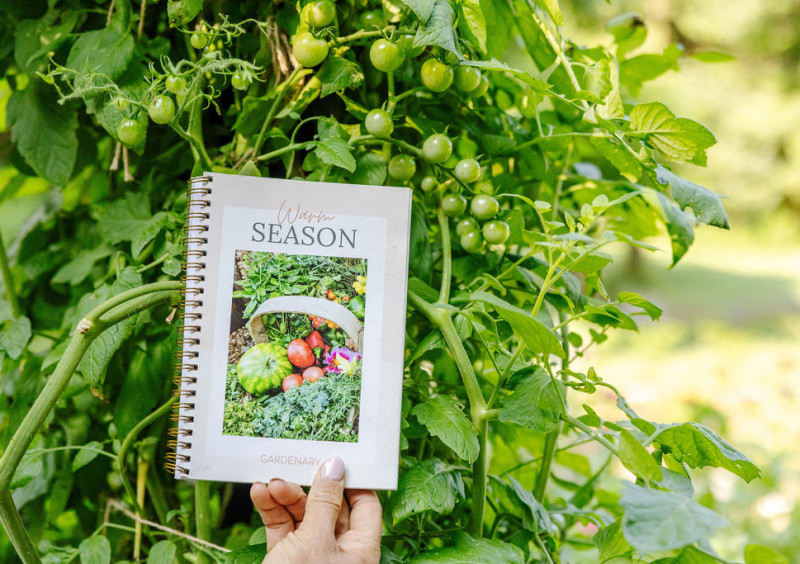
The Most Effective Alternative to Pesticides
Instead of reaching for sprays at the first sign of a problem, consider implementing Integrated Pest Management (IPM) in your garden space. IPM relies on a mix of science and common sense to manage pests in your garden in a way that minimizes any negative environmental effects.
The goal with IPM is not to completely eliminate pests. It's all about building more balance into your little garden ecosystem so that it's really difficult for the pests to ever get the upper hand. If you can achieve this balance, then organic gardening becomes really easy and you're never tempted to reach for unnecessary chemicals.
Here are the central components of IPM.
Use Physical Barriers
Few things are more effective at preventing pest pressure in the first place than physical barriers like row covers and fencing. If you deny the pest access in the first place, they can never get in and cause harm now or lay their eggs (which will lead to harm in the future).
Learn more about using simple barriers to protect your garden from pests.
Practice Cultural Control
Cultural control is all about the growing conditions within your garden. Here are the things that you have some control over:
Soil Health
Think of your soil as the immune system of your garden. Healthy soil should be teeming with life: fungi, bacteria, worms, and microbes that help plants grow strong. Research has shown that plants grown in microbial-rich soil demonstrate greater resistance to pests and disease compared to those grown in soil devoid of life.
As it turns out, when plants have everything they need in the soil, they produce natural compounds that deter insects and help them bounce back quicker from damage.
In contrast, soil that lacks nutrients and activity from fungi and bacteria can’t support healthy plant growth. No matter how many fertilizers and pesticides you add, you’ll still get lower crop yields and weaker plants that invite pests and disease.
Here are a few tips to keep your soil as healthy as possible:
- Apply compost to your garden regularly to add nutrients and support beneficial life forms in the soil.
- Sprinkle worm castings on top of your soil. Worm castings are like probiotics for your soil. They introduce good bacteria and fungi that help plants thrive.
- Avoid using pesticides, which can kill the earthworms, ground beetles, and other beneficial life forms you want living in your soil.
→ To learn more about maintaining healthy soil, check out Gardenary Soil School.
Learn the Gardenary Soil Method
Get the step by step to create, maintain, and enhance your own organic garden soil inside Gardenary's Soil School.

Plant Diversity
Plant diversity is key because each plant does something to create a healthier environment inside of your garden space. Flowers attract pollinators and other beneficial insects, fragrant herbs deter pests, leafy greens shade the soil, and legumes fix nitrogen into the soil.
The more diverse you can make your garden, the richer of an environment you can create, one where no single pest can take over. Think of plant diversity as a system of checks and balances.
Besides planting good companion plants like fragrant herbs and flowering plants, you can also add in some trap crops to help control certain problematic pests.
Plant Rotation
Plant rotation is all about ensuring the plants that are in your garden truly belong there. That means you're planting them in the right growing season and removing them once the temperatures are no longer ideal for them. You're picking plants that like growing in your climate and the level of drainage that your soil provides.
Overall, growing the right plants at the right time and in the right spot will keep plants healthy enough that they can fight off diseases and pests on their own.
If you have problems with pests attacking the same plant year after year, reconsider if that plant is really something that's worth growing. For me, I don't like squash enough to deal with two of my least favorite pests, squash vine borers and squash bugs. So that means I don't bother growing squash, and if my family is craving it, I take that opportunity to support local farmers.
Garden Hygiene
Practicing good hygiene means cleaning up garden debris from your soil, especially in late fall. Many pests and even plant diseases can overwinter underneath fallen leaves and fruits.
I also don't recommend using mulch around your vegetables. Large pieces of wood—like debris—just give pests a nice little place to hide. Instead of mulch, spread compost over your soil surface and keep the soil covered by planting herbs, leafy greens, and fruiting plants spaced closely together so the leaves shade the ground—this helps prevent moisture loss and keeps nutrients in place. (This is called intensive planting.)
Proper Watering
Keeping your plants hydrated prevents plant stress. The way you water can also make a difference. It may feel satisfying to give your plants a good shower, but you typically want to aim your water at the roots of the plant, not the leaves. Watering the leaves can actually contribute to pest and disease issues.
If you're watering by hand, buy a water wand so that you can water right at the base of the plant without having to bend over. A watering can works great too; just use your other hand to hold the plant's leaves out of the way. Even better, install a soaker hose or a simple drip irrigation system to deliver water right to the root zone of the plants.
The best time to water is in the early morning so that a plant is able to draw on that moisture during the heat of the day. I generally don’t recommend watering at night because that’s the time when the pests are coming out to feast, especially ones like slugs and snails that thrive in the cool, wet, and dark. You want leaves to be dry by this point to prevent pest pressure and disease.
→ Learn more about the best ways to water your garden.
Kitchen Garden Revival
Kitchen Garden Revival is your invitation to ditch the messy, high-maintenance veggie patch and step into a new way of gardening, one that’s elegant, organized, and endlessly rewarding.

Encourage Biological Control
I've already mentioned the food chain in this post. The pests that are attacking your garden are, for the most part, closer to the bottom than the top of that food chain. Do some research and figure out what in nature preys on the pest that's become an issue. What will eat the thing that's eating your plants?
One example, of course, is ladybugs eating aphids. If aphids are your problem, you can welcome their predator by setting up your garden to be a great environment for ladybugs.
Your goal is to bring more of the natural predators into your garden space. Sometimes, if you just sit back and wait, the predator will be drawn by the pests and invite themselves in!
→ Learn more about beneficial insects, including pest predators and parasitoids that can keep pest populations under control naturally.
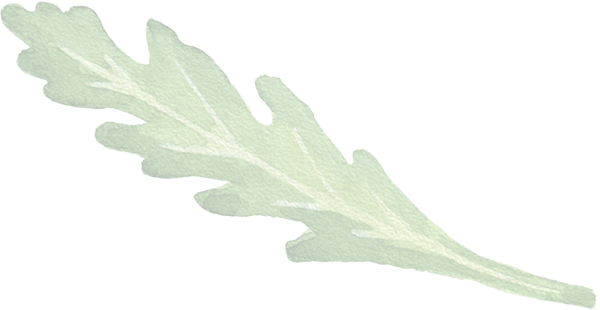

Practice Mechanical Control
Mechanical control is basically using a little elbow grease, and in kitchen gardens, it's extremely effective at reducing pest populations.
Step one to handle any kind of pest issue you may encounter is to bust out your garden pruners and remove any pest- or disease-affected leaves. Pruning the damage sometimes has the added benefit of removing the pests, as well.
Other mechanical control measures include pulling weeds, mowing grass around your vegetable garden, hand-picking pests and dropping them into soapy water, and using devices that scare pests away (like a rubber snake, a fake owl, or a wind chime).
Apply Targeted Pesticide, Starting with the Gentlest Option
Turning to pesticides should be a last resort. In many cases, it’s best to remove the affected plants, clean the area, and start again with a different type of plant.
Before using any kind of pesticide, you’ll have to play doctor by first diagnosing the problem based on the symptoms and then prescribing the right treatment. Don't just come out to the garden with your bug spray before you even know what’s happening. Some pest issues initially appear to be a disease issue, and vice versa.
In extreme pest situations, it’s still a good idea to try the most gentle pesticide first, like insecticidal soap made with diluted Dr. Bronner’s Castile Soap or garlic barrier spray. I would only ever move up to something more severe after I’ve exhausted all other strategies.
In extreme pest infestations, you could use Monterey B.t, an organic product that consists of Bacillus thuringiensis, a soil-dwelling bacterium that kills caterpillars but has no effect on honey bees or birds. There’s also organic Sluggo if the issue stems from soil-borne pests like slugs or snails.
Keep in mind that just because a treatment is organic, doesn't mean it won't still have some type of negative impact on something other than the pest you're hoping to kill. That's why I very rarely turn to even the mildest of organic pesticides.
What to Do When Garden Pests Show Up
- Correctly identify the pest (or disease) attacking your plants. Take a picture of the pest and do a reverse image search on Google, or send the picture to your local extension. Do a little research about that pest and its lifecycle so that you'll know the best methods to control it organically.
- Now that you know what the pest is, ask what your garden is trying to tell you. Did this pest show up because your plants are stressed out? Maybe they're not getting watered consistently or you're trying to grow them outside of their preferred temperature range. Maybe you need to work on improving your soil health. See if you can ID the root source of the problem. Addressing the real problem can oftentimes prevent future pest issues.
- Choose control options that fit within organic gardening principles. Here are the five steps I always follow whenever I'm dealing with pests in my garden or my clients' gardens.


How to Reduce Your Pesticide Exposure
There are five things you can do to help, both in and out of your garden.
- Prioritize buying organic food, especially foods that appear on the Dirty Dozen, a list of fruits and veggies found to contain traces of the most pesticides, per the Environmental Working Group. A recent study found that glyphosate concentrations in urine decreased by more than 70 percent after just 2 days of eating completely organic produce.
- Support local farms. They're less likely to use big agg practices like spraying entire fields with pesticides. Let them know how important it is for you to have organic food.
- Plant your own pollinator garden. Do what you can to provide healthy food for the garden "good guys". When bees and butterflies can't find safe food in huge fields of crops, they rely on little plots of earth filled with organically grown food for them. Learn more about starting a pollinator garden.
- Stop reaching for the bug sprays. Learn how to treat pests in your own garden organically.
- Keep the plants in your garden as healthy and strong as possible by doing things like growing the right plant for the right season and location, giving plants plenty of space, watering and tending as necessary, etc. Healthy plants are much better able to fight off pests and disease on their own.
Pesticide FAQs
Are pesticides harmful to humans?
Pesticides are potentially toxic to humans, and exposure can lead to both acute and chronic health effects, depending on the type of pesticide, the amount, and the route by which the exposure occurs (e.g., swallowing, inhaling, or coming into direct contact with the skin). According to the World Health Organization, the people most at risk of negative health outcomes like cancer from pesticides are those who come into contact with them at work, in their home, or in their garden.
Can pesticides be washed off?
While some amount of pesticides can be washed off by holding produce under running water, washing is not 100% effective. Even so, it's a good idea to wash any fruits and veggies you get from the grocery store, the farmers' market, and your garden. The National Pesticide Information Center recommends placing your produce in a strainer, setting it under running water, and gently rubbing the skin of fruits like grapes and apples—no soap required.
How do pesticides work?
Most pesticides work by disrupting vital functions like eating or transmitting nerve impulses. Ultimately, this leads to death or incapacitation. Some pesticides, called Insect Growth Regulators (IGRs) work by mimicking hormones that control molting and development. The pest will die instead of mature to the next stage of development. (Obviously, this doesn't work on adults.)
For many pesticides, the pest has to have prolonged contact with the residue on a treated surface, like a leaf, for it to be effective, though some pesticides kill on direct contact. Other pesticides must be eaten by the target pest. Bacillus thuringiensis, or B.t., for example, is a bacterial toxin that disrupts the digestive tract of caterpillars.


Pesticides Are Not the Answer to Garden Pests
So just remember: spraying one little leaf affected by pests is not an isolated occurrence. Our food system is connected to all other systems. It's connected to our fellow humans, to the pollinators we rely on, to our water supply, and to other animals.
And that's why we have to do better. Each of us can do our own part.
Organic gardening without pesticides is really the only way to go. Don't worry—it's possible to keep your garden free of pesticides and still have a beautiful and productive vegetable garden. And honestly, when you stop freaking out and reaching for sprays at the first sign of pests, gardening becomes a whole lot less stressful.
Gardenary's Organic Pest Control Method
Stop fighting pests. Instead, start gardening with them in mind. No panic. No harsh sprays. No endless guessing. Just a thriving, abundant garden that practically protects itself. With the Organic Pest Control Method, you’ll learn the exact steps I take to grow naturally and confidently, season after season.


